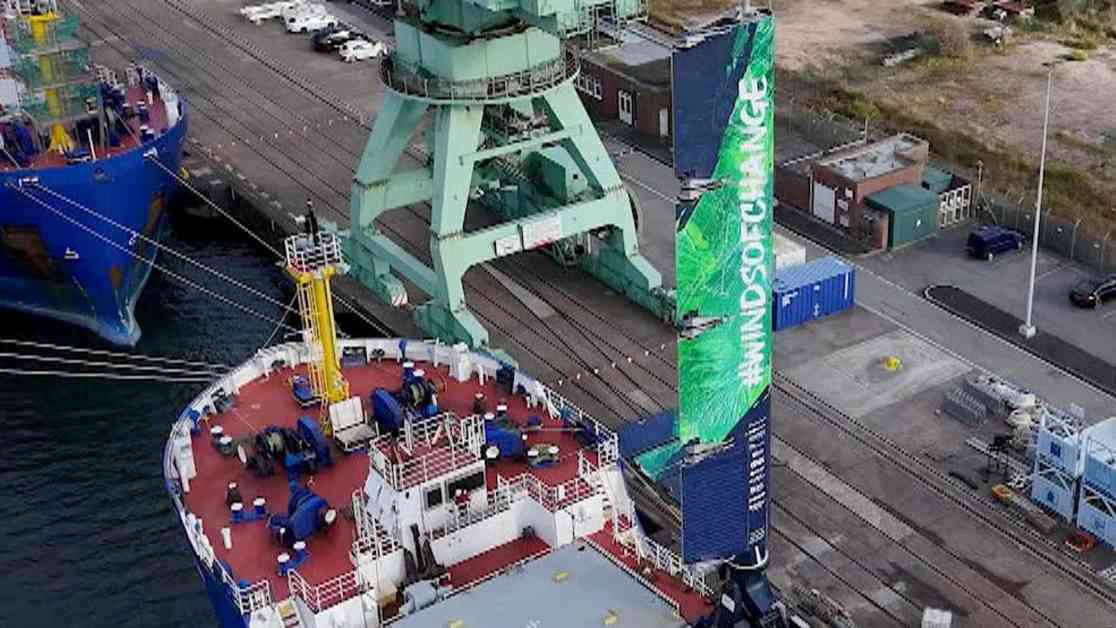A trial of a rigid sail to reduce carbon footprints in commercial ships is currently underway in the Irish Sea. The sail being tested resembles an aircraft wing and is being fitted onto one of the UK’s nuclear transport vessels designed to move nuclear waste. This initiative is supported by the Nuclear Decommissioning Authority.
The shipping industry heavily relies on oil-burning engines due to the lack of alternatives, leading to a significant contribution to global greenhouse gas emissions. With fuel prices constantly changing, there is a growing interest in exploring ancient technologies like sails to modernize the industry. Various sail technologies have been demonstrated in the past, but detailed evidence of their performance is limited.
The FastRig sail being tested is a retractable wing designed by Smart Green Shipping, and is the first of its kind in the UK. The company’s founder, Diane Gilpin, highlights the importance of understanding the economic and operational impacts of such technology on modern fleets. The trial involves retrofitting a single FastRig sail onto the Pacific Grebe vessel, which is specially equipped to transport nuclear cargo safely.
The vessel has radiation-shielded and heat-shielded holds for carrying high-level nuclear waste, but for the trial, it is empty of hazardous cargo. Smart Green Shipping aims to demonstrate that multiple FastRig sails on ships could lead to significant fuel and emission savings, potentially up to 30%.
This trial marks a significant step in exploring innovative solutions to reduce carbon footprints in the shipping industry. The success of the FastRig sail could pave the way for more sustainable practices in maritime transportation, addressing the industry’s environmental impact while also considering economic and operational factors. As the world seeks to combat climate change, initiatives like these play a crucial role in transitioning towards a greener future.










